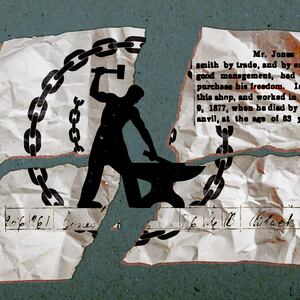On April 25, all nine justices of the U.S. Supreme Court signed a Statement on Ethics Principles and Practices, which they submitted to the Senate Judiciary Committee.
“In regard to recusal,” the justices unanimously declared that they “follow the same general principles and statutory standards as other federal judges.”
It took Justice Samuel Alito less than five months to renege on his written commitment to his colleagues and the public. In a four-page statement issued on Sept. 8, Alito declined to recuse himself from a major tax case, without a single citation, reference, or acknowledgement of either the federal recusal statute or the “general principles” that he had so recently agreed to follow.
Instead of applying statutory law or Supreme Court precedents, Alito invented an entirely new rule, never before invoked by any justice. Claiming that recusal is simply the “personal decision of each justice,” Alito announced that he would recuse himself only on the basis of a so-called “sound reason”—an undefined, and previously unknown, rationale that has no inherent meaning.
Both the late Chief Justice William Rehnquist and the late Justice Antonin Scalia published opinions explaining their non-recusals. Each justice premised his decision on the federal recusal statute, quoting the provision that a justice “shall disqualify himself in any proceeding in which his impartiality might reasonably be questioned.”
Far from calling it a “personal decision,” Rehnquist explained that “the inquiry is an objective one, made from the perspective of a reasonable observer who is informed of all the surrounding facts and circumstances.”
Nor did Scalia believe that recusal was just a matter of personal choice. “Recusal is the course I must take—and will take—when, on the basis of established principles and practices, I have said or done something which requires that course,” he said.
In contrast, Alito’s law- and precedent-free statement was directly related to his earlier declaration in a Wall Street Journal interview, published on July 28, that “No provision in the Constitution gives [Congress] the authority to regulate the Supreme Court—period.”
The interview had been conducted, in part, by attorney David Rivkin, who was then, and still is, counsel of record in a pending Supreme Court case called Moore v. United States, which may determine the government’s power to tax “unrealized gains” and wealth. Given the unique relationship between Alito and Rivkin (no other justice is known to have given an interview to a lawyer with a case then before the court) Sen. Richard Durbin (D-IL) sent a letter to Chief Justice John Roberts on Aug. 3, asking him “to take appropriate steps to ensure that Justice Alito will recuse himself in… Moore v. United States.”
Alito could easily have denied Durbin’s request under the terms of the federal statute, but he had a more performative point to make.
Thus, as we have seen, Alito’s recusal ruling relied solely on his personal beliefs, without reference to the law and principles that he had committed himself to follow only a few months earlier. He oddly claimed that Rivkin had conducted the interview “as a journalist, not as an advocate,” as though a lawyer could somehow suspend his obligations to his client in high-stakes litigation when deciding whether to confront or coddle an interview subject who just happened to be one of the judges in his case.
With no hint of irony, or self-awareness, Rivkin subsequently co-authored an essay in The Wall Street Journal arguing that Alito had gotten the recusal issue—and everything else—exactly right. Whether Rivkin was acting as a journalist or an advocate, Alito had every reason to be gratified by the highly visible praise.
There is nothing that Roberts can do individually about a justice who disdains congressional authority and has all but announced that he has no intention of accepting statutory law. There are steps, however, that the other eight justices, acting in concert, can take in response to Alito’s idiosyncratic stance.
First and foremost, the court should finally adopt a written ethics code, just like every other court in the U.S. The Code of Conduct for United States Judges, applicable to the lower federal courts since 1973, includes specific provisions for disqualification, including the familiar requirement for recusal when “the judge’s impartiality might reasonably be questioned.” Roberts once said that the Supreme Court “has had no reason to adopt the Code of Conduct as its definitive source of ethical guidance.” Alito has resoundingly proved him wrong.
In addition, the court should end its “historic practice” of assigning recusal decisions exclusively to the justice in question. That approach may work tolerably well when every justice agrees to “follow the same general principles and statutory standards as other federal judges.” But it fails utterly when a justice proclaims that Congress is not the boss of him, and petulantly refuses even to mention the provisions and precedents that other justices have respected.
As I have pointed out before, the Constitution vests the judicial power of the United States in “one Supreme Court,” not nine supreme justices. No single justice should be able to decide that his personal decisions are above the law.
Steven Lubet is the Williams Memorial Professor Emeritus at the Northwestern University Pritzker School of Law. He is coauthor of Judicial Conduct and Ethics (Fifth Edition), and has written many other books.









